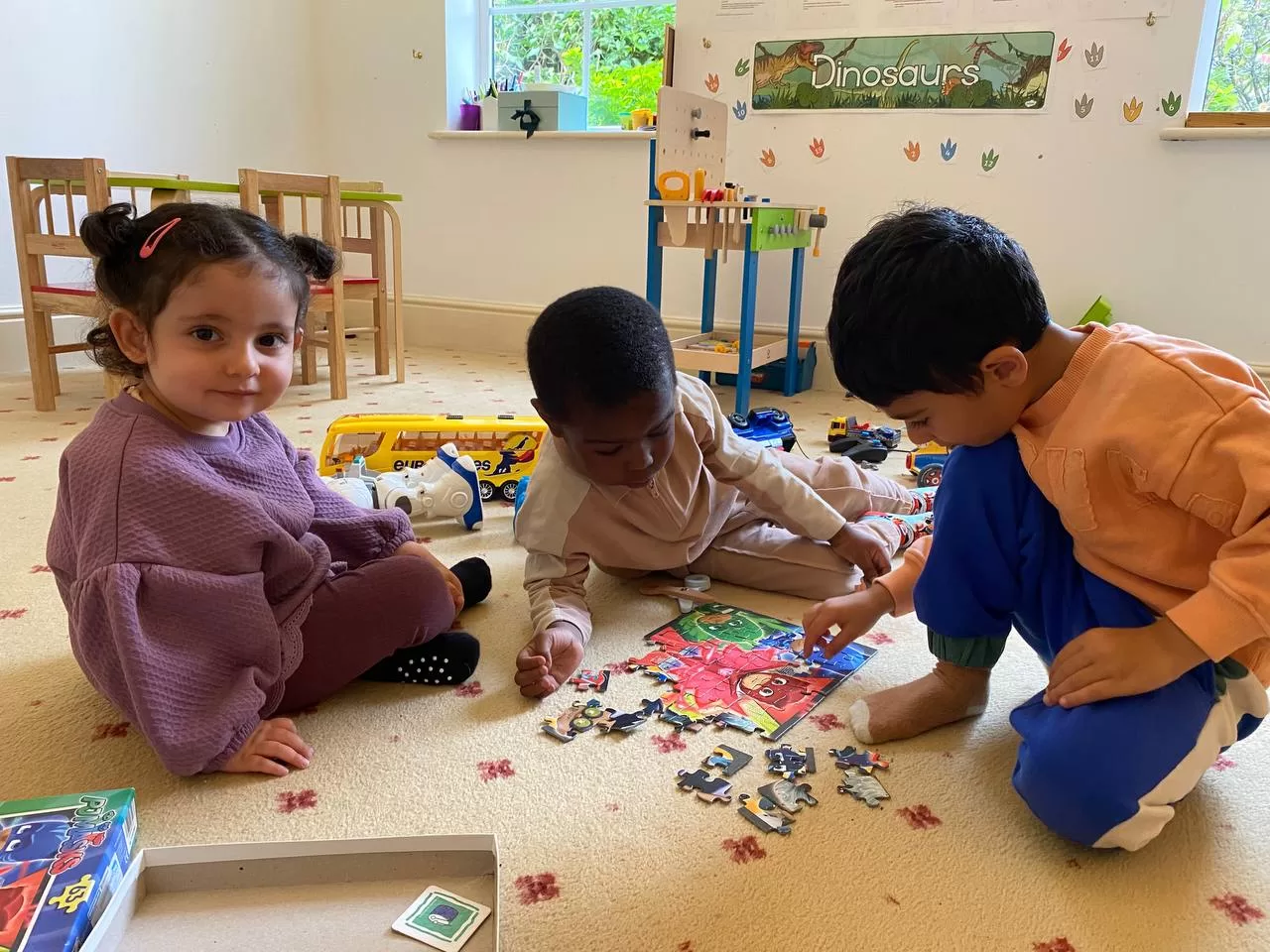The early years of a child’s life are a critical time for their development and learning. During this period, creating an environment that offers stability, predictability, and security is crucial for both emotional and cognitive growth. Routine and structure are key elements in providing this stability. A well-planned routine helps children feel safe and understand what to expect, fostering confidence and reducing anxiety. This structure also supports their development, both at home and in nursery settings, by encouraging positive behaviour, enhancing social skills, and laying a foundation for lifelong learning. early childhood education plays a vital role in shaping these experiences, ensuring children receive the support they need for healthy development.
In this article, we will delve into the importance of routine and structure in early childhood, explore its benefits, and offer practical tips for parents and caregivers on how to establish effective routines for toddlers both at home and in nursery environments.
Why Routine and Structure Matter in Early Childhood
Children, especially in their early years, thrive in predictable environments. A routine and structure in early childhood helps them know what to expect, reducing anxiety and fostering a sense of security.
- Creating a Sense of Security: A predictable daily routine gives children the safety of knowing what comes next. For example, when they consistently wake up, eat, and nap at the same times each day, they feel more secure in their environment. Establishing routine in early childhood lays the foundation for this sense of safety and stability.
- Supporting Emotional Regulation: Toddlers are still developing the ability to manage their emotions. A consistent routine helps them better understand transitions and handle their feelings. When they know that after playtime comes snack time, for instance, they are more likely to cope with the change without distress. This is why embedding routine and structure in early childhood is so beneficial—it helps them navigate emotional challenges with confidence.
- Promoting Independence: Routine also plays a role in developing independence. By following a routine, children learn to anticipate and perform tasks on their own. This might involve brushing their teeth after breakfast or tidying up after playtime. Having routine and structure in early childhood encourages these independent behaviors and builds their confidence in managing daily activities.
- Cognitive Development: Structured activities help children develop key cognitive skills. Regular, repetitive tasks reinforce their memory, problem-solving abilities, and understanding of sequences, all of which are fundamental to early learning. The incorporation of routine and structure in early years ensures that children engage in consistent learning experiences that enhance their cognitive growth.
The Benefits of Routine and Structure for Toddlers
Toddlers experience a range of emotional and physical changes as they grow, making it even more important for them to have routine and structure in early childhood. Here’s how these elements support their development:
- Encouraging Positive Behaviour: When toddlers understand the flow of their day, they are less likely to resist transitions between activities. Knowing that after outdoor play they will have lunch, for example, reduces the chances of a tantrum during that shift.
- Reducing Stress and Anxiety: New experiences or sudden changes can be stressful for young children. A consistent routine provides familiarity, helping toddlers feel more at ease and reducing their anxiety in unfamiliar situations, such as starting nursery.
- Supporting Social Development: Routines within nursery settings encourage social interaction. For instance, group activities at specific times, like storytelling or snack time, teach toddlers the social rules of waiting, sharing, and taking turns.
Routine and Structure in Nursery Settings
Nursery environments offer a structured space where children can engage in educational and social activities. The routine provided by nurseries is key to supporting children’s development in these early years, emphasizing the importance of routine and structure in early childhood.
Effective nursery routines typically include:
- Daily Schedules: A set schedule is crucial in nursery environments. Activities are divided into clear segments, such as outdoor play, group activities, nap times, and meal times. Having a predictable schedule helps children understand and prepare for transitions.
- Structured Learning Opportunities: In addition to free play, nursery routines often include learning activities like craft sessions, music time, or educational games. These not only enhance cognitive skills but also provide children with opportunities to develop their fine motor and social skills.
- Consistent Meal and Nap Times: Regular mealtimes and nap times help children regulate their energy levels and mood. A well-rested child is more likely to engage positively with their surroundings and nursery peers.
- Behavioural Expectations: Nurseries also establish a structure around acceptable behaviour. Through consistent routines and gentle reinforcement, children learn to follow instructions, respect boundaries, and develop social etiquette.
Read About How to Help Your Child Settling at Nursery: 6 Strategies
Establishing Routine and Structure at Home
For routine and structure to truly benefit a child, consistency between the nursery and home environment is important. Here are some practical tips for parents to establish effective routines at home:
- Set Consistent Sleep Patterns: Having regular bedtimes and wake-up times is vital for toddlers’ well-being. A well-rested child is generally more emotionally balanced and ready to face the day. Establishing a calming bedtime routine that involves quiet activities, like reading or a warm bath, signals to the child that it’s time to sleep. Incorporating routine and structure in early childhood ensures that these patterns become predictable and comforting.
- Morning and Evening Routines: Creating simple routines for morning and evening tasks helps toddlers understand the flow of their day. A typical morning routine might include getting dressed, having breakfast, and brushing their teeth, while an evening routine might involve bath time, pyjamas, and reading a story.
- Facilitating Transitions: Transitions from one activity to another can be tough for toddlers. Helping them anticipate transitions through verbal warnings or visual timers can ease the shift from play to bedtime or from home to nursery.
- Encouraging Independence: Letting your toddler participate in simple decisions, like choosing their outfit for the day or helping set the table, can give them a sense of control and responsibility, making them more willing to cooperate during routine tasks.
The Role of Flexibility in Routine
While routine and structure are incredibly beneficial, it’s also important to remain flexible. Routines should provide stability, not rigidity. Life with young children is unpredictable, and there will inevitably be days when things don’t go as planned. Flexibility allows you to adapt while still maintaining a sense of structure.
For instance, if a toddler skips a nap or mealtime runs late, it’s essential to be adaptable. The routine serves as a guideline, not a strict rulebook. This balance between structure and flexibility helps children learn resilience and adaptability.
Also Read: How to Choose the Best Nursery for Your Child’s Early Years
Conclusion
Routine and structure in early childhood are essential for fostering a secure, predictable environment where young children can thrive. Whether at home or in nursery settings like Happy Chalet Nursery, providing consistency through daily routines helps children understand their world, reduces anxiety, and promotes independence. Furthermore, structured routines support cognitive development by encouraging children to engage in learning, socialise with peers, and build important life skills.
By striking a balance between routine and flexibility, parents and caregivers can create an environment that nurtures confidence and emotional well-being, while also allowing children the space to explore and grow at their own pace. Establishing routines not only benefits the child in their early years but also sets the stage for a successful and structured approach to learning and growth in the years to come. With the right balance, you’ll be helping your child develop a strong foundation for a happy and healthy future.






